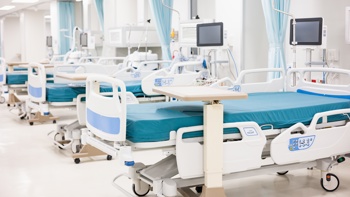I wasn’t at all surprised this week to hear the New Zealand Nurses Organisation (NZNO) confirm that thousands of nurses working at medical centres across New Zealand will strike on September 3rd.
Close to 3200 Primary Health Care nurses and administration staff who work at medical practices and accident and medical centres have been in pay negotiations for around nine months now, and with many of them working under stressful conditions on the Covid 19 frontline, it was only a matter of time before action became inevitable.
Apparently two-thirds of the country’s primary health care nurses and administration staff voted to strike, the first time they have chosen to do so.
According to NZNO Industrial Adviser Chris Wilson, community nurses just want to be paid the same as their District Health Board colleagues. An experienced nurse earns 10.6 per cent less ($7,651 per annum) than a hospital nurse, and some on the medical receptionist/administration scale earn lower than the living wage.
It’s hard to argue against their value – Covid 19, like it has with so many of our essential workers, has highlighted how indispensable our nurses and public health staff are. They have worked tirelessly in difficult situations and at risk to themselves, swabbing the community, calming stressed out patients in the effort to protect us all.
As we become frustrated by further lockdowns, border breaches, a testing and contact tracing system that isn’t up to scratch, conspiracy theories and finger-pointing and bickering politicians – it’s easy to forget to be grateful for what we have. We’ve been asked to wear a mask; they have been asked to bravely put themselves on the line.
Frontline Covid workers have been in the news for all sorts of reasons over the last few weeks, and it’s not because we’re recognising the incredible job they’re doing is it? And yet we should recognise it. Daily.
I am incredibly grateful for public health staff, especially those who have stepped up to work at overrun testing stations, but is this the right time to be going on strike? We have no idea what situation we could find ourselves in September – here’s hoping its life at level 1 or 1.5, but it’s more likely Level 2 for some.
Wilson wants the government to step in and resolve this issue, but this is not an issue for the government to intervene in. Nurses working in non-DHB workplaces, including primary health, are employed by private employers, and the Minister of Health Chris Hipkins is correct in stating, “Their pay and conditions are not negotiated with the Government or Crown entities. It is not appropriate for the Government to interfere in that process."
Clearly, community nurses are at the end of their tether, but using the pandemic to make this point, they run the risk of politicising it.
However, the Ministry of Health is in my view being negligent by not stepping in and helping out in the short term. Nurses are feeling burnt out, stressed and tired.
There needs to be funding made available through Primary Health Organisations to general practices to make sure nurses are being cared for as well as they care for us.
We need to make sure they have access to PPE gear, they get quality time off, they’re protected from abusive members of the public, they are being tested, their stress and anxiety is being acknowledged and treated, and there’s casual staff available to pull in when need be.
The government might not be able to directly help their long-term employment issues, but it at least owes it to our nurses to keep them safe and sane right now.
Take your Radio, Podcasts and Music with you









